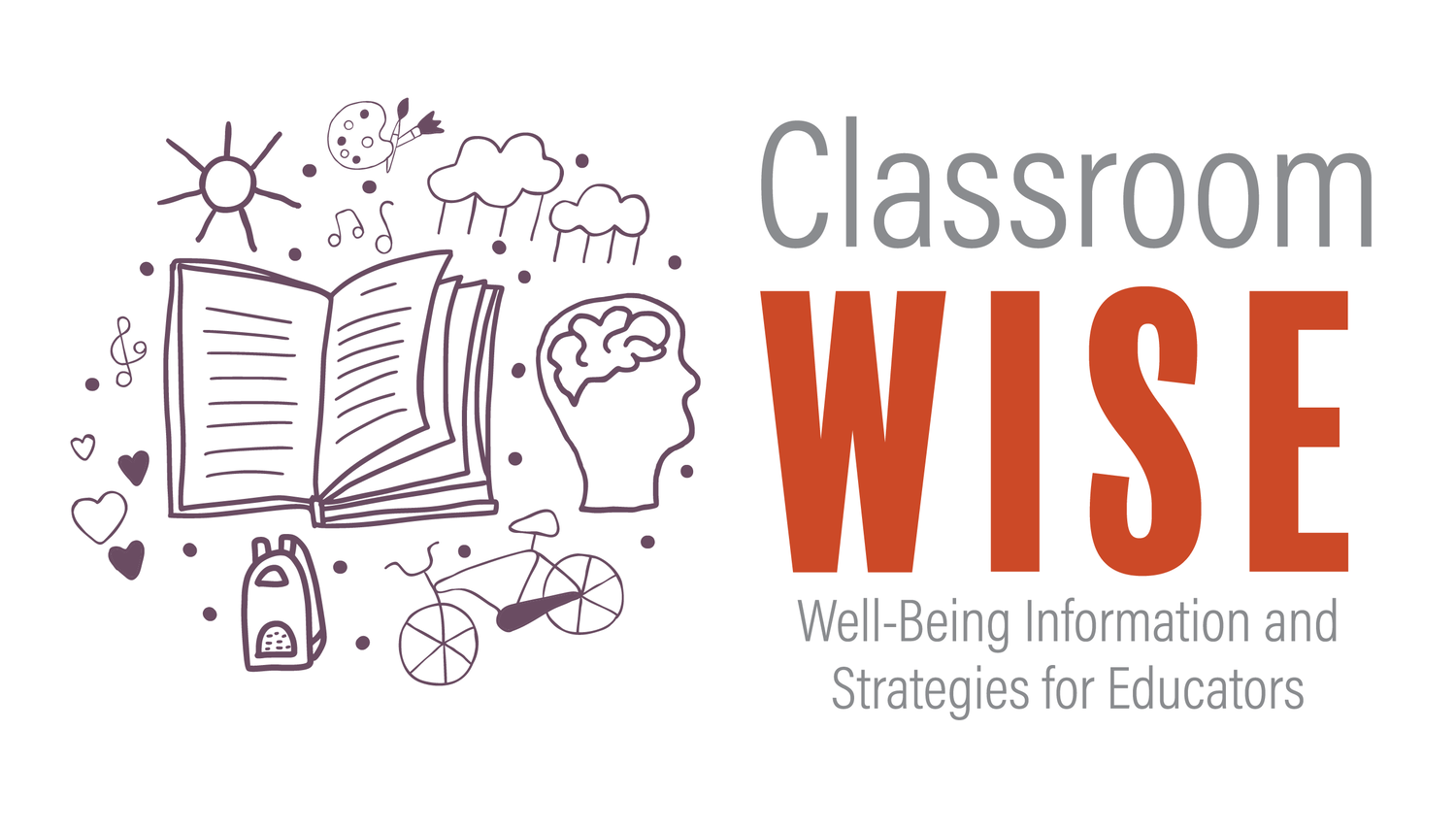
Classroom WISE Resources
Module 5: The Impact of Trauma and Adversity on Learning and Behavior
Glossary
This resource includes definitions for key terms used throughout the Classroom WISE course.
Childhood Trauma and Adverse Childhood Experiences
This resource outlines information related to adverse childhood experiences, their impact, and ongoing ACES studies.
Developed by the CDC
This resource details traumatic events, childhood traumatic stress, and risk and protective factors.
Developed by NCTSN
Childhood Traumatic Grief: Information for School Personnel
This resource provides educators with guidance for helping students experiencing traumatic grief.
Developed by NCTSN
Complex Trauma: Facts for Educators
This resource is a detailed list of facts regarding trauma aimed at educators.
Developed by NCTSN
This resource from Harvard's Center on the Developing Child provides an overview of toxic stress, social causes, and steps toward prevention.
Developed by Harvard’s Center on the Developing Child
This resource provides a review of the various types of trauma that impact people on a daily basis.
HEART Framework: Healing Ethno And Racial Trauma Framework
This resource is a journal article that examines the Latinx immigrants living experience in the United States. Latinx immigrants often experience the negative effects of systemic oppression, which may lead to psychological distress, including ethno-racial trauma.
Developed by Chavez-Duenas, N., Adames, H., Perez-Chavez, J., Salas, Silvia (2019)
Demonstrating Trauma-Sensitive Teaching Practices
Addressing Race and Trauma in the Classroom
This resource is intended to help educators understand how they might address the interplay of race and trauma and its effects on students in the classroom. After defining key terms, the guide outlines recommendations for educators and offers a list of supplemental resources.
Developed by NCTSN
Teaching Tolerance Anti-Bias Framework
This resource is a set of anchor standards and age-appropriate learning outcomes divided into four domains—identity, diversity, justice, and action (IDJA). The standards provide a common language and organizational structure: Teachers can use them to guide curriculum development, and administrators can use them to make schools more just, equitable, and safe.
Developed by Learning for Justice
Building Trauma Sensitive Schools
This resource is a packet that contains guidelines, strategies, and professional development activities that can be used to build trauma-sensitive schools.
Developed by the National Center on Safe Supportive Learning Environments
Creating, Supporting, and Sustaining Trauma-Informed Schools
This resource will help schools and sites that partner with schools have a better sense of the areas they can address when working towards a more trauma-informed school.
Developed by NCTSN
Guidance for a Trauma-Informed Approach
This resource aims to develop a working concept of trauma and a trauma-informed approach and to develop a shared understanding of these concepts that would be acceptable and appropriate across an array of service systems and stakeholder groups.
Developed by SAMHSA
Institute for Trauma Treatment in Schools
ITTS provides training resources for professionals in trauma-informed care. Free courses include “Foundations for Understanding Trauma and its Impact on Teaching & Learning" and “Practical Applications "Providing Evidence-Based Treatments in Schools and Trauma-Informed Care for Special Populations.”
Developed in partnership between Simmon University's School of Social Work and the Alliance for Inclusion and Prevention
Integrating a Trauma-Informed Approach in PBIS
This resource describes how district and school leaders can incorporate trauma-informed practices within a Positive Behavioral Interventions and Supports (PBIS) framework.
Developed by the Center on PBIS
This resource is a 9-module video series that cover foundations of trauma-informed school mental health and trauma-informed school approaches, classroom, and counseling supports. The presented content in each module is enhanced by opportunities for self-reflection and strategizing as well as interviews with educators, administrators, school counselors and clinical trainees, parents, and students.
Developed by the National Center for Safe Supportive Schools
Principles of a Trauma-Informed Approach
This resource provides a summary of SAMHSA's Guide for a Trauma-Informed Approach that can be applied to the classroom.
This resource provides educators with suggestions for helping students experiencing trauma in the classroom.
Developed by NCTSN
Trauma Responsive Schools theory of Change Toolkit: National Edition
This resource is a toolkit designed to guide users to develop a plan and to organize efforts to meet evidence-based practice standards in creating trauma-responsive schools.

